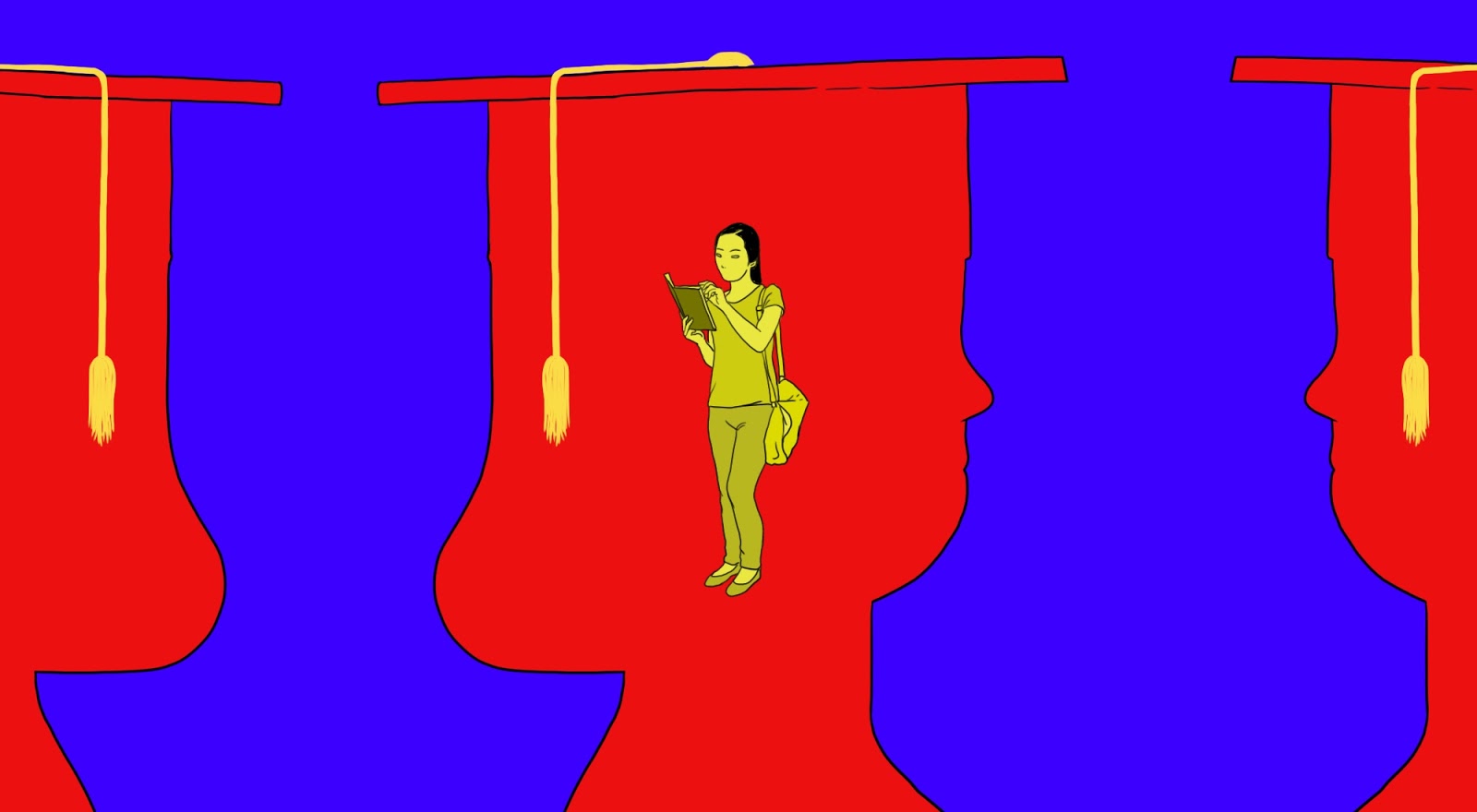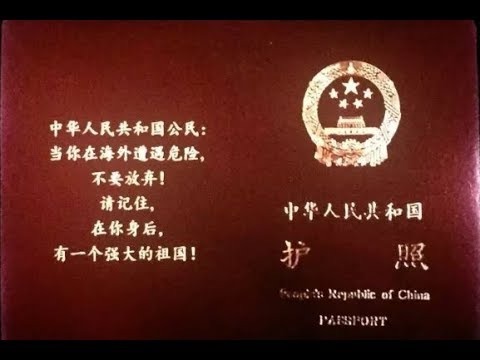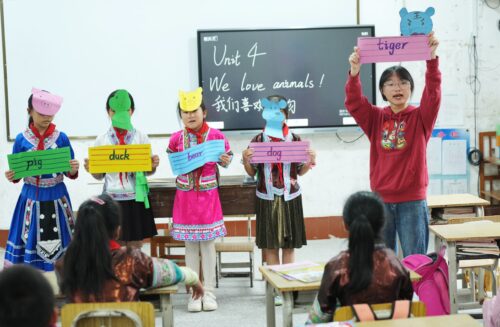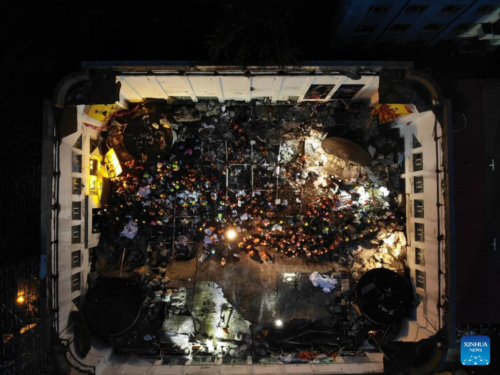Chinese international students feel unwanted in the U.S. — and back home
Facing unprecedented Sinophobia in the U.S. and a president who antagonizes them, Chinese international students have been trying to find ways to return to China. But people there haven't been exactly welcoming, either.

In late March, China’s civil aviation sector enacted a widely controversial “Five Ones” policy, under which only one mainland Chinese carrier could retain one route to an international country, flying once per week, while foreign carriers could only have one route to China, also flying once per week. This was enacted out of fear of a second wave, especially from “externally imported cases,” of COVID-19. The result was that flight prices soared, with a direct flight from San Francisco to Beijing being traded (yes, traded) at as high as 70,000 yuan ($10,000).
This put China’s international students in a bind, as many were eager to go back home — thanks in part to President Donald Trump’s embarrassingly inadequate response to COVID-19, along with rising Sinophobia sparked by his insistence on calling the virus the “China virus.” Those who were able to secure tickets battled other problems, including delays, cancellations, and re-routed itineraries. In late March, more than 200 Chinese students leaving from the U.S. got stuck in Addis Ababa for up to five days days, as all China-bound flights of Ethiopian Airlines were canceled on short notice.
And then, at the end of their long journey back home, many found they weren’t welcomed.
A fresh college graduate named Tyler told us that he now sees nationalism, the Chinese Communist Party, and China’s systemic problems in a different light.
“If you haven’t gone through the process, it is hard to imagine the level of pointless bureaucracy and formalism involved,” he said. “We had to fill out a ‘health code’ for 14 consecutive days, and if we missed one, we’d have to start over again, or we couldn’t board the plane. They are totally neglecting the possibility of asymptomatic carriers, let alone how easy it is for someone to just lie on their temperature. This is absurd.
“You can’t stop COVID by filling out redundant documents. I think this is just a way for officials to shift liability off their shoulders if there is a second wave: if there is a new spike from people returning from abroad, they could blame it on us not filling out the forms truthfully. They also don’t want to risk tarnishing their bureaucratic record with any ‘imported’ COVID cases.”
He also complained about the government’s tendency to apply one policy for drastically different situations — a one-size-fits-all approach that can lead to frustration. “By late May, most airports had more than enough capacity to take us in, but authorities kept citing logistical difficulties as a reason to prolong ‘Five Ones,’ while they’re rejecting Delta and United’s requests to field more flights,” Tyler said. “Previously, I had faith that the CCP could resolve some of the entrenched problems that hinder its effectiveness as a government, like red tape and corruption. But after experiencing these systemic problems in person, I am now a lot less hopeful.”
Erich, a political science major who had to wait from May to July for an overpriced ticket, noted that China’s unwillingness to help bring its international students home highlights the fragility of their anti-COVID efforts. “For the purpose of ‘maintaining stability,’ the CCP cares a lot about establishing an illusion that everything is under control, which means taking visible, drastic measures that sacrifices some businesses (stopping them from opening) and some people (international students, etc.). After all, they did say that they would stop COVID at all costs — someone has to be the cost, right?”
When Beijing got hit with a second wave in June, Erich was still quarantined in Xiamen, more than 1,300 miles away from his home.
Mǎ Zhāoxù 马朝旭, the Vice Minister of Foreign Affairs, said in April that there were 1.42 million Chinese students that remained abroad. Although the official statistics have not been updated, it is not likely that the number has changed much, given the extremely low traveling volume due to “Five Ones.” This is quite ironic in the context of Wolf Warrior 2‘s grandiose takeaway: “The Chinese passport could be the best in the world. Perhaps it can’t take you anywhere you want yet, but it can bring you home from wherever you are.”

Chinese society hasn’t exactly been friendly to their students abroad, either. Motivated by the fear of a second wave and resentment against the rich for being able to let their children escape the rigid gaokao system, many unleashed online fury against students abroad, accusing them of being unpatriotic. When anxious parents posted on Weibo about their children’s desperate situation of being stuck abroad alone, they were told by online users to “check their privileges” and “don’t be a nuisance to ‘the motherland’ when there are so many things going on [in the fight against COVID-19].”
Nathan, who is on track to a Ph.D. in physics, said, “It has always been my dream to be someone like Qián Xuésēn 钱学森, waiting for the best moment to give up personal riches and go back to help make China a better place. Sadly, it turns out that they think of me more as a liability than an asset these days.”
Because of Trump’s tightening H1B (work visa) policies, Nathan still plans to go back to China after getting his doctorate. “My future lays back in China, not because I love my country, but I have no choice.”
Bowen, a U.S. green card holder whose family moved to Houston two years ago, didn’t expect to become a victim of “Five Ones” himself. “We had no plans of going back to China, until my grandmother suddenly passed away in May,” he said. “Tickets for the whole family were definitely out of the question, but we couldn’t even get a flight for my dad to go back in a timeframe that makes sense.”
Meanwhile, the Trump administration is closing doors in the U.S. In a time of crisis, Chinese international students find themselves caught between two worlds, not fully belonging to either.
Chenchen, a student in the U.S., remarked that he feels stuck between a rock and a hard place. “While being heavily underappreciated by Chinese society, we also have to deal with all sorts of prejudice in the U.S.,” he said. “Ironically, we have been accused of bringing the coronavirus to both countries. Well, joke’s on them — Europeans brought it to the U.S., and a salmon brought the second wave to Beijing.”
Many are hurt by Trump’s overtures — however symbolic — about Chinese talent having no place in his vision of America. Together with the mass cancellation of Chinese work visas last month, the Trump administration has effectively pushed many future talents back into the arms of the CCP. Chinese disillusionment following “Five Ones” presented a great opportunity for the U.S. to make China’s top talent pool its own. Unfortunately, Trump has failed to take advantage.
All names have been changed to protect identities.





